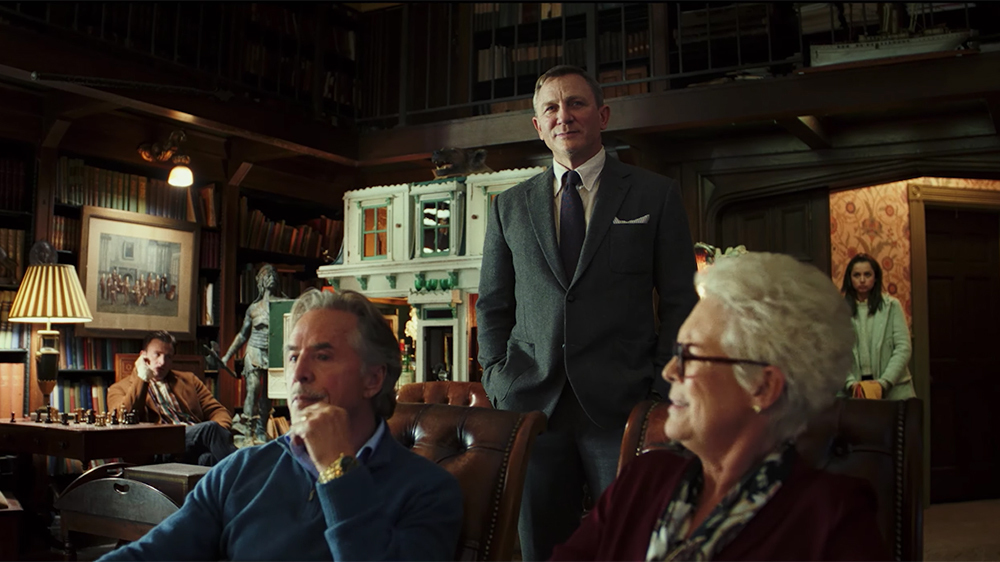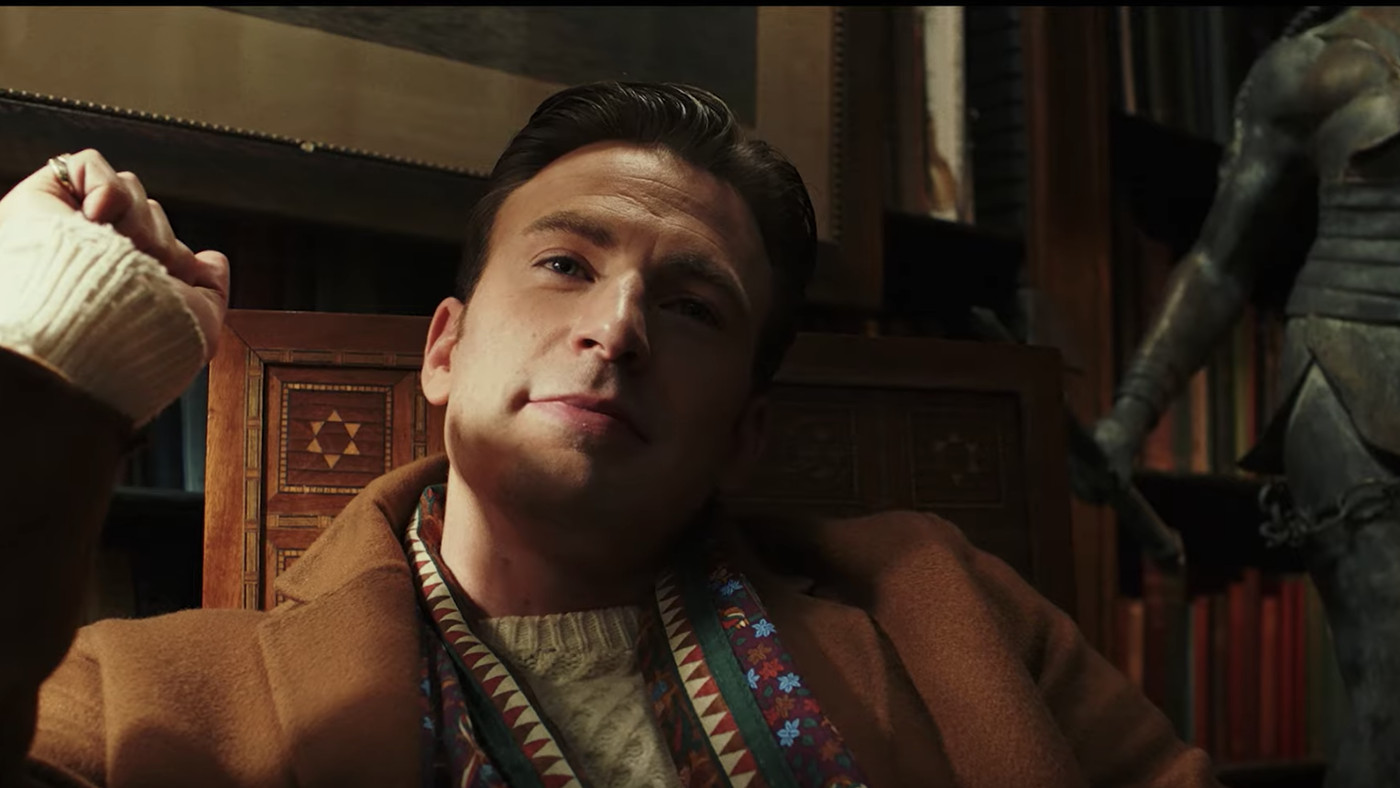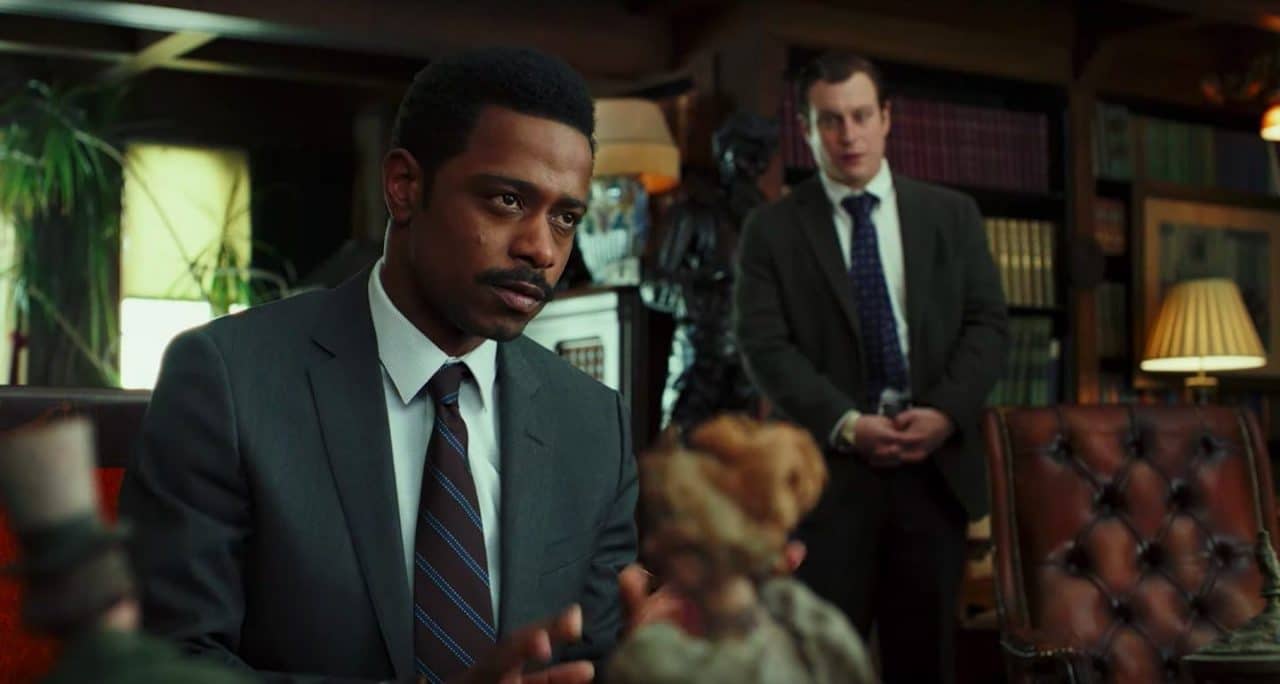Cleverness is one of the most important, or at least most utilised, tools in Rian Johnson’s toolbox. The writer-director debuted with the clever conceit of setting a film noir in a high school (Brick). He followed that up with a clever, Wes Anderson-inspired take on the con man movie (The Brothers Bloom). His time travel movie, 2012’s Looper, was particularly clever in the ways it handled causation and other time travel logic. Finally, it required a pretty clever approach to explode our preconceptions for a Star Wars movie with Star Wars: The Last Jedi.
“Cleverness” may sound like a back-handed compliment here, but the truth of the matter is, it can be the deciding factor between a skilled storyteller and a pretender. There’s no doubt Johnson is a skilled storyteller, so it’s a bit surprising that his instincts for cleverness abandon him in the type of genre movie that might require those instincts the most. His new movie, Knives Out, is an old-fashioned whodunit, and such movies tend to hinge on the acuteness of their cleverness. It’s strange, then, that the inevitable twists and narrative surprises feel so rote.
This is not to say that you’ll be able to predict who did it, or that Knives Out is in any way straightforward. But the thing about a clever whodunit is that the reveals should play as inevitable “a-ha!” moments, based on the way the story has been constructed. We might not have been able to guess the culprit as the events were unfolding, but in retrospect, all the clues should point to that person with an inescapable certainty. The byproduct of Johnson’s particular brand of cleverness should be profundity. In Knives Out, it isn’t.
As much as he’s struck out on his own with idiosyncratic takes on the genres he’s tackled, Johnson has also repeatedly shown us his fan boy side. He does so here by name-checking the board game Clue, which was made into its own movie back in 1985. Perhaps he’s making more of a direct comparison to a board game than he means to. The actual setup of that game involves randomly selecting a suspect, weapon and location from a larger set of cards, then stuffing them in a secret envelope for the duration of the game. A narrative film should feel more deliberate than the result of random choice, but Knives Out suggests that Johnson didn’t really care which culprit he chose to do the deed. He appears satisfied making a typical example of the genre, when we expected a superlative one.
As with most whodunits, every suspect has a motive for killing Harlan Thrombey (Christopher Plummer), a successful mystery novelist who has been found in his bedchamber by his housekeeper, throat slashed. As this is the morning after his 85th birthday party, his extended family and other interested parties all had occasion to be on the premises. Because of course he did, Thrombey chose his birthday to cut various family members out of his will, either because they’d been suckling at his teat at the expense of their own upward mobility, or because they had been outright stealing from him. Add in the discovery of a potential cheating scandal, and you’ve got a perfect storm of suspects with both the motive and the opportunity. Thrombey’s family members are played by Jamie Lee Curtis, Don Johnson, Michael Shannon, Toni Collette, Chris Evans and Jaeden Martell, whileAna de Armas plays his nurse. Daniel Craig is a private eye investigating the crime.
Johnson does actually shake things up a bit, from a structural standpoint, after laying out the suspects and their motives. He does this by showing us what actually happened. It’s here that he asserts his “Rian Johnson-ness,” if we want to credit him as a disruptor after what he did with the last Star Wars movie. He thinks the movie can still work even if you shake out the Clue cards halfway through, since he’s got other tricks and mysteries up his sleeve to continue stringing us along. The problem is, the tricks and their corresponding plot details feel banal. To justify this structural inversion, they should pay off in more interesting ways than they do here.
We’ve got half measures throughout Knives Out. If Johnson’s model is, indeed, the Clue movie, he might have really gone for it in terms of comedy, allowing the performers to push their roles into caricature. Only Daniel Craig really does this, though, as he’s eager to explore more of the southern accent work he debuted in Logan Lucky. He’s kind of a dandy detective in the mode of Hercule Poirot, the Kenneth Branagh character from Murder on the Orient Express – a film this film resembles more than it should, or probably meant to. He even shares in common with Agatha Christie’s hero a funny French name: Benoit Blanc. But the suspects Blanc cross examines are, well, blank faced, at least compared to him. Everyone else is rejoining Craig’s twang with just their own regular speaking voices. You can feel Craig urging the other actors to be funny, or at least fun, and not quite understanding why they won’t comply.
The reason we expect as much as we do from Johnson is that he’s clearly an exceptional technician. All the trimmings of Knives Out are first rate. The Thrombey mansion is a dream host to these events, complete with parlours and chambers and balconies, not to mention its own chair made of knives that resembles Game of Thrones’ iron throne. This ridiculous chair functions as one of the film’s best jokes, and Johnson doesn’t even do anything with it. Why he didn’t trust his instincts and make this material more outrageous is anybody’s guess.
Certain types of movies are so out of fashion that perhaps the mere existence of a new one is reason enough to cheer. That seems to be Johnson’s opinion, anyway – like “Hey look! I made a whodunit in 2019!” But good is not good enough, and the man who made his name being clever hasn’t gone far enough with this one. He needed to explode the whodunit like he exploded Star Wars, if only as an explanation for why he wanted this as his next project. Instead, he left most of his knives in their sheaths.


